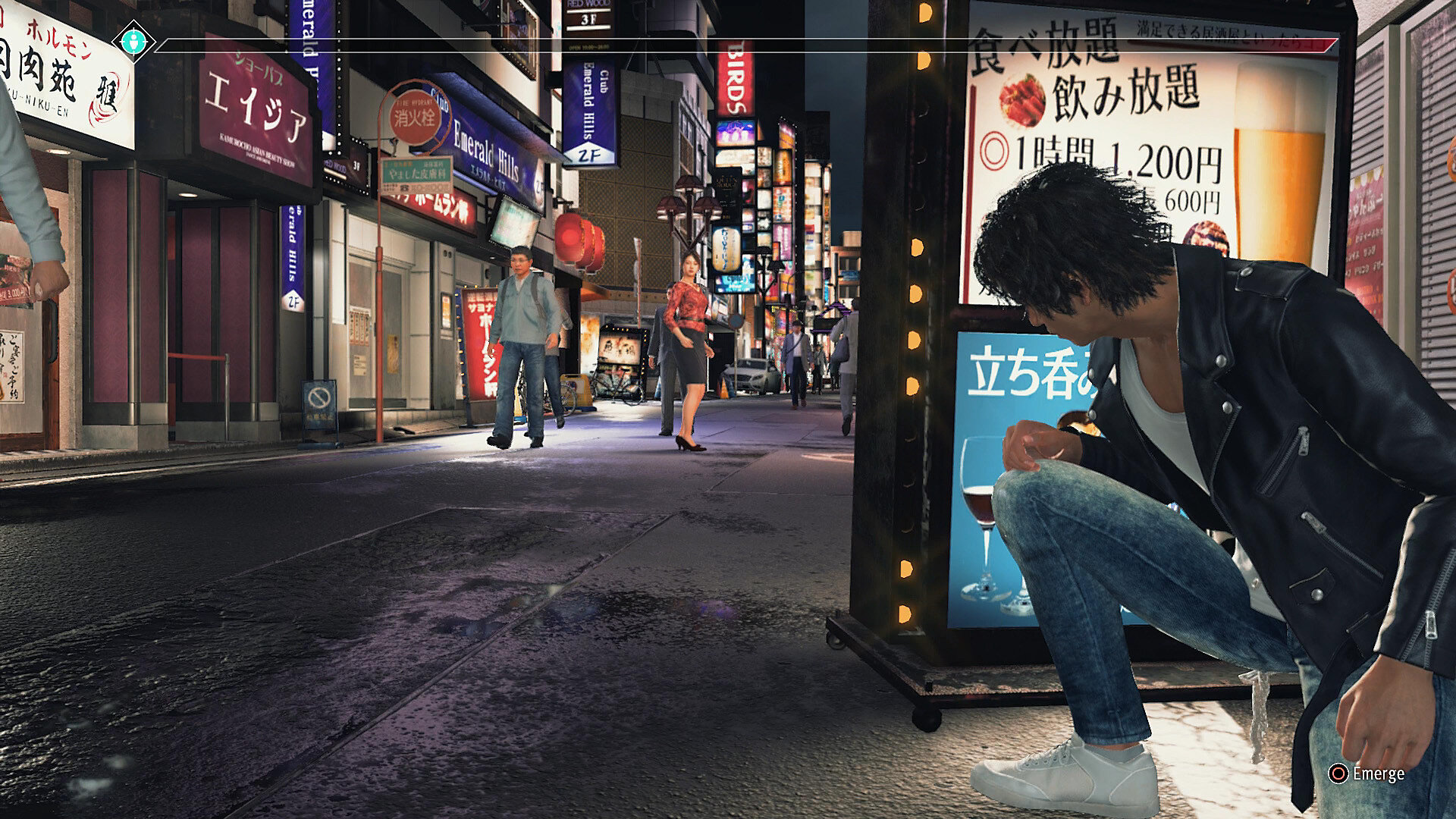Judgment
“No Objection”
2019, Playstation 4
When thinking of commercially successful Japanese game development in the 21st century, Nintendo and Square-Enix are likely to be among the first companies that come to mind for most game enthusiasts. Two companies that operate in classes of their own, in terms of quality, polish and attracting a loyal following. SEGA often falls behind Platinum, Capcom and even Konami, from the western perspective, even though the Yakuza series has been a blockbuster in Japan since 2005. When SEGA announced that Yakuza 6 would close out the series (albeit falsely) they presented Judgment as its successor, much to the chagrin of Yakuza fans who assumed there could be no substitute for the action role-playing king of Kamurocho. This however turned out to be prejudice, as Judgement has taken the mantle of Yakuza and advanced its unique style of play to a new level.
Judgment first accedes to Yakuza by taking place in the very same location of Kamurocho, re-using the location assets from its forebear. Playing as a disgraced lawyer, now a private detective the player goes through the usual exploration of a lively urban district of Tokyo. Using the new engine from Ryu Ga Gotoku the player is able to enter stores and restaurants without load times, even when involved in street brawls.
The brawling element of the game, while off to a slow start—which is likely due to a fear of ludo-narrative dissonance—increasingly becomes as enjoyable as the Yakuza series and introduces a new element allowing the player to change fighting styles while in battle.
Judgment includes a mode which surfaces about ten times throughout the game where you must “tail” a suspect on foot venturing not too close as to alert them to your presence, but also not losing them from your sight. As with every implementation of such a mechanic in the history of gaming this is tedious and unfulfilling. Which to some degree is true of many of the diversions found in Judgment.
Another example of middling execution is the lock-picking and key memorisation activities. Throughout the game you will accumulate lock keys on your key ring, and as you revisit locations you will be prompted to remember which key is the right one for the right door. The only penalty for not remembering correctly is a loss of a bonus (the “SP” that enables you to unlock skills to benefit your character’s progression). In a Brain Age kind of way, it’s interesting, but not really engaging or additive to the overall enjoyment of the game. The lock-picking is fairly routine as well, with a slight twist on the mechanic most would find familiar from Betheda’s Elder Scroll series.
The crime scene investigation mechanic at first seemed new and original. Moving around the environment of a recently committed crime you must zoom in on areas of interest. If something is found that is worth examining closer a prompt appears that enables you to unlock one of the multiple (usually three) clues to end the sequence. Again, with no penalty for exploring dead ends and infinite allowances to investigate it quickly becomes apparent to experienced gamers that you can merely “pixel hunt” (i.e. methodically scan) the entire area until an object of interest makes itself clear.
Another more interesting element is a dialog choice option that comes up while questioning suspects and defendants. Again there is no penalty other than the loss of an “SP” bonus, and in the course of the interaction you get the option to present all dialog choices. Distractions from the Yakuza series continue, such as gambling, mahjong and the SEGA arcade, and finally there are achievements for “beating” restaurants for ordering all of the items on the menu. Similarly the side stories are plentiful and provide tens of hours of additional game play. All of the quirkiness of the traditional Yakuza games is intact and with the new down-to-earth protagonist perhaps even more credible.
The plot of Judgment is satisfying enough with plenty of unpredictable turns. The ensemble of characters are multi-dimensional, even those which would ordinarily be portrayed as evil archetypes. The crime solving story is a refreshing change to the soap opera-like power plays of Yakuza and will likely be more accessible to most western players.
Judgment is no cliché, in fact it remains a unique offering from Ryu Ga Gotoku, but to describe it as being “greater than the sum of it’s parts” is a fitting description. All of the elements, some half-baked, come together to provide an experience that is enjoyable and earnest, and while the game may stand on the shoulders of a giant, it doesn’t change the fact that is still above all in its genre.
Phil Fogg
8/10



